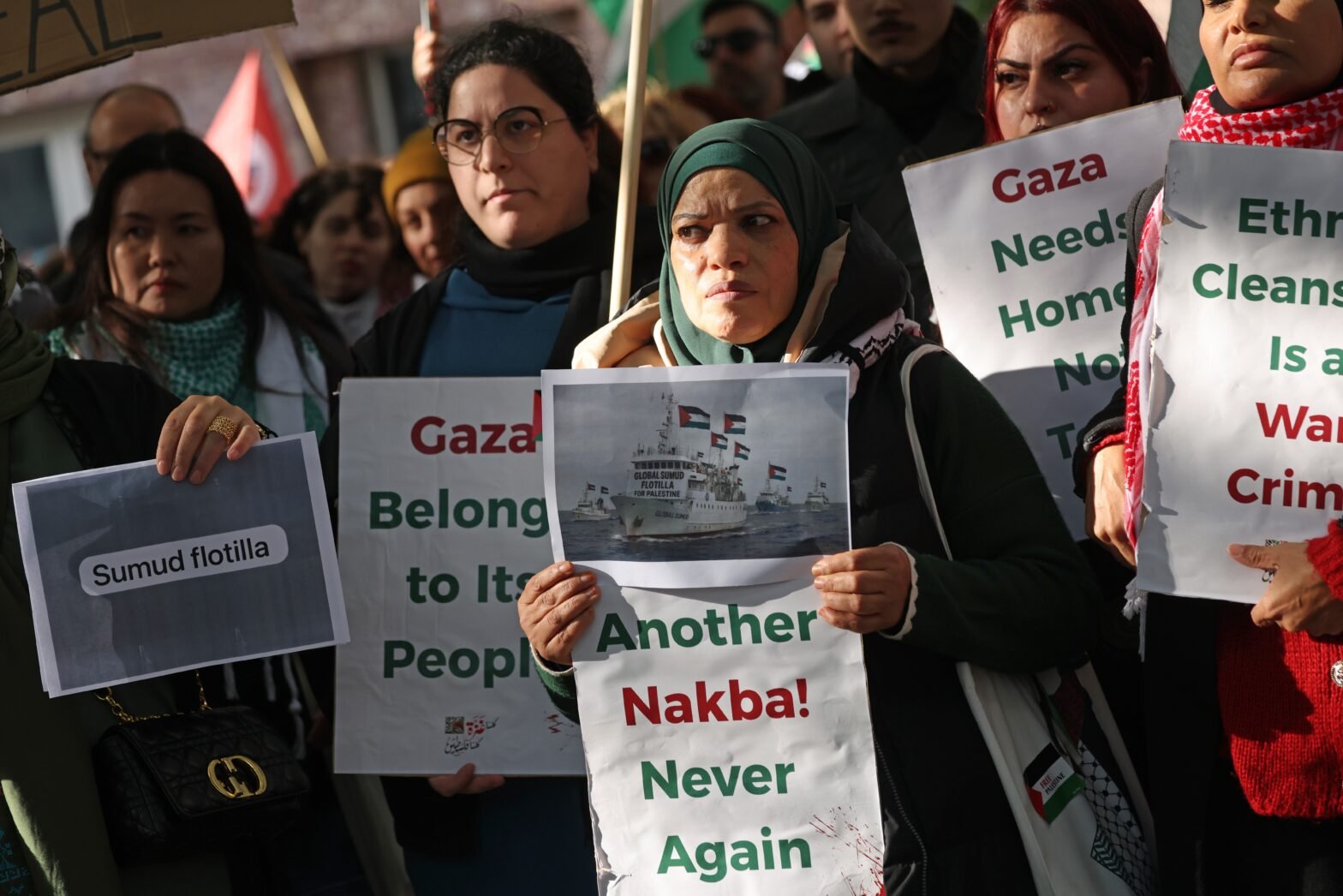“What gives me strength in this difficult time is my faith. Praying together, reminding each other to stay strong, believing that better days will come,” is how Zaher, 56, a resident of Gaza City, begins his account, while the internet connection cuts in and out during our conversation. Around him, the city lies in ruins, drones hum over rooftops, and fear has become a constant presence. After more than two years of conflict, Israel and Hamas have agreed to a fragile ceasefire mediated by Egypt, Qatar, Turkey, and the United States. The Israeli offensive in Gaza has caused over 66,000 deaths and 170,000 injuries in two years, according to local health authorities. Hamas still holds 48 hostages, of whom 20 are reportedly still alive, according to Israel.
After describing the daily hardships, Zaher speaks about the fragile ceasefire and the recently mediated agreement by Egypt, Qatar, Turkey, and the United States. “The ceasefire gives us hope, even if only fragile, that our children might finally sleep without fear and that some of the hostages could return home soon.” The first phase of the agreement includes the release of all hostages, nearly 2,000 Palestinian prisoners, and the future disarmament of Hamas, marking a possible turning point in a conflict that has lasted over two years. “What gives me strength in this difficult time is my faith which gives me hope and patience. Praying together, reminding each other to stay strong, and believing that better days will come. Also, the spirit of our community. Even when everything around us is collapsing, neighbours help each other, and we try to support one another in every possible way. Despite all the pain, we believe that this land is ours and we need to be strong to keep going.”
Zaher describes a weary but united community. “The pressure and exhaustion are heavy. People are tired, emotionally and physically, but we keep finding strength in one another. Everyone is struggling, but that struggle has brought us closer together.” Solidarity between families keeps the social fabric alive: bread, water, and medicine are shared whenever possible. Collective prayer also becomes a way to remain human, to resist fear. When asked about his dreams, Zaher replies with simplicity and strength. “My biggest dream is simply to have ceasefire immediately, live in peace and safety, to see my children grow up without the sound of bombing, and to give them a normal life full of opportunities. I hope fordays when we don’t have to worry about whether we will have enough food, water or shelter.”
Every day is a test of survival. “It is hard to imagine life here, every day a struggle and a test of resilience. We face death every day, fear of losing our beloved ones, our homes, yet hope and human connection never leave us. Although we live with danger and scarcity, our hearts are full of resilience and the will to survive.”
Zaher also talks about support for the Sumud Flotilla, the international civilian fleet attempting to bring aid to Gaza by sea, an initiative that has repeatedly tried to bypass the Israeli naval blockade in international waters, but has never succeeded. “People of Gaza have expressed strong support for the flotilla. They view it as a powerful symbol of global commitment to Palestinian rights and a call for an end to the blockade. They also believe it could increase international pressure to have an immediate ceasefire.”
He then describes the harshest aspects of daily life. “The biggest challenges we face every day are constant insecurity, unavailability of basic needs such as food and water, in addition to continuous displacement of people and evacuation. Healthcare is also a major concern. Hospitals are overcrowded, medical supplies are limited, and many people die while waiting for treatment.”
His words sum up a life on edge. “Many of us have lost our homes and now live in crowded shelters or tents. Food, water, and medicine are scarce, and we spend hours every day just trying to find what we need. The hardest part is watching our children live in fear. They no longer sleep peacefully.”
Finally, before the connection drops, Zaher writes one last message: “We do not ask for pity, only to live in peace.” Then the line goes dead. Silence remains, but also his voice—the voice of a man who continues to believe in life, his community, and a future that, despite everything, never stops hoping.





















